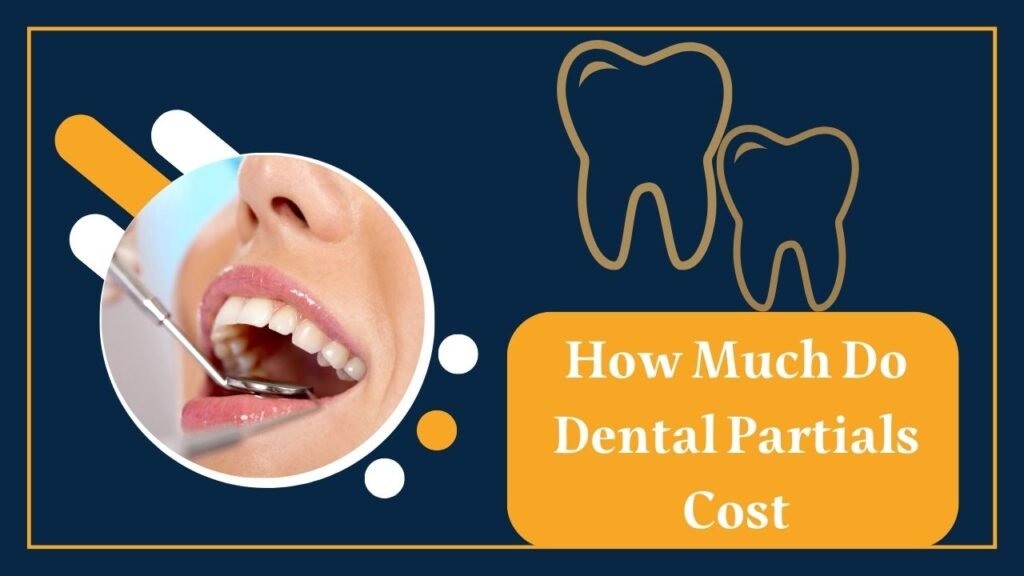Understanding dental partials cost helps you plan for treatment with confidence. Dental partials replace missing teeth, improve chewing, and restore your smile. This guide explains types, price ranges, and factors that affect costs so you can choose the best option for your needs.
This comprehensive guide will break down the costs of dental partials, highlight the different types available, and explain the factors that influence their prices. By the end, you’ll have a thorough understanding of what to expect and how to make an informed decision.
What Are Dental Partials and Why Do They Matter?
Dental partials are removable appliances designed to replace missing teeth, offering several significant benefits:
- Improved Chewing: They help restore your ability to chew food effectively.
- Enhanced Speech: They can aid in clearer speech by filling gaps in your teeth.
- Better Facial Appearance: By filling in gaps, partials can help maintain your facial structure and appearance.
Given these benefits, it’s essential to understand the financial implications before committing to this dental solution.

Types of Dental Partials and Their Costs
This YouTube video below by John Jazayeri explains partial dentures in detail. It covers pros, cons, costs, and different types available. These insights help readers compare tooth replacement options clearly.
Different types of dental partials cater to various needs and budgets. Here’s a breakdown of each type and their associated costs:
1. Acrylic Partial Dentures
Acrylic partial dentures are a popular choice due to their affordability.
- Material Composition: Made from a durable plastic that mimics the appearance of natural gums. They are generally more affordable but might feel bulkier.
- Pros: Cost-effective and suitable for many people.
- Cons: Can be less comfortable and prone to breakage if not cared for properly.
- Price Range: Typically between $300 and $500 per arch. Basic acrylic partials are usually around $300 to $400, while more detailed designs can approach $500.
2. Metal Partial Dentures
Metal partials offer enhanced durability and strength.
- Material Composition: Features a metal framework that makes them more resistant to damage. Metal clasps may be visible, which could be a concern for some users.
- Pros: Highly durable and robust, offering a longer lifespan.
- Cons: Metal clasps might be visible, which can affect aesthetics.
- Price Range: Usually between $500 and $1,000 per arch. Basic metal partials start around $600, with more complex designs reaching up to $1,000.
3. Flexible Partial Dentures
Flexible partials are known for their comfort and adaptability.
- Material Composition: Made from a flexible, soft material that conforms to the natural shape of your mouth. They are generally more comfortable than acrylic or metal partials.
- Pros: Provides a more comfortable fit and is less noticeable.
- Cons: May not be suitable for all cases, particularly if significant bite strength is needed.
- Price Range: Typically between $600 and $1,200 per arch. Basic flexible partials cost around $700, while more advanced options can reach up to $1,200.
Factors Influencing the Cost of Dental Partials
Understanding what drives the cost of dental partials can help you make a more informed decision. Here are the key factors affecting the price:
- Number of Teeth Replaced: Replacing more teeth generally means a higher cost. A partial that replaces multiple teeth will be more complex and require more materials.
- Material Quality: Higher-quality materials, such as stronger clasps or more natural-looking bases, will increase the cost. Investing in better materials can lead to a more durable and aesthetically pleasing partial.
- Dental Lab Fees: The cost of crafting the partial can vary depending on the laboratory’s fees. Labs with advanced technology or those known for high-quality work may charge more.
- Geographic Location: Prices can vary based on location. Urban areas or regions with a higher cost of living may have higher dental fees.
- Dentist’s Experience and Expertise: More experienced dentists might charge higher fees. Their expertise can contribute to a better-fitting and longer-lasting partial denture.
Additional Costs to Consider
Besides the primary expense of dental partials, there may be additional costs involved:
- Consultation Fees: Initial consultations with your dentist may include additional fees. These fees can vary based on the complexity of your case and your location.
- Dental X-rays and Examinations: You may need X-rays or other diagnostic tests before the partial is made, which can add to the overall cost.
- Relining or Adjustments: Over time, your partial may need adjustments or relining to ensure a proper fit, leading to extra expenses.
- Financing Options: Many dental practices offer financing plans to help manage the cost. Inquire about available payment options at your dental practice.
- Dental Insurance Coverage: Check with your insurance provider to see if they cover part of the cost for partial dentures. Insurance can help reduce out-of-pocket expenses.
Conclusion:
To get an accurate cost estimate tailored to your specific needs, scheduling a consultation with a dental professional is crucial. Discussing your options with an expert will help you make an informed decision that fits both your budget and your oral health needs.
Ready to explore your options? Contact your local dentist today to schedule a consultation and learn more about how dental partials can benefit you. Many practices offer free initial consultations—take advantage of this opportunity to get a personalized cost estimate and start your journey toward a healthier, more confident smile.
Find Your Perfect Dentist
Easily book appointments with top-rated dentists in your area
Need Emergency Dental Care?
Get immediate help from verified dental professionals